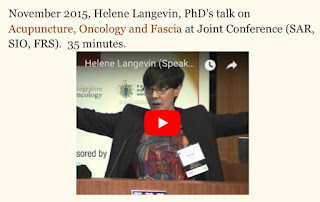Help us build a new directory of hospital-based learning opportunities!
keywords: resource directory, wisdom-sharing, finding trail guides, a short survey
Get your hospital-based resource listed in a new
Hospital-practice Handbook Project directory!
Find Your Trail Guides: The Hospital-practice Learning Opportunities Directory
 |
| www.thehospitalhandbook.com |
This was announced in the August 2018 HH Project newsletter.
Situation
I often receive inquiries about how to start in hospital practice
Background for Directory idea
In June, after I finished posting the last of the How to Get Your Foot in the Door of Hospital Practice blogpost series, I surveyed the hospital practice group and learned we do not yet have a published directory of practitioners and/or programs that offer direct ways of finding trail guides or maps (i.e. mentorships, internships, shadow opportunities, or courses/programs) for EAMPs/L.Acs. interested in hospital practice OR interested in a new area of hospital practice.
Assessment
From all the feedback on the directory plus the feedback from publishing the blogpost series, it sounds like the directory will be a useful resource for you all and the larger hospital-practice EAMP/L.Ac. community. The directory also ties in with future Hospital Handbook Projects, including the two interview series, Paths to Practice and Issues in Hospital Practice Webinar Series.
Plan
In response, I create an online survey form to collect information. Please share the survey link with colleagues or your hospital admin (hospital sponsor). I know everyone is busy!
Let's see if we can get a least 10 response by October 1st, 2018, so I can have a goal of getting it up as a pdf on the website soon after.
Review: The What and Why of the Survey
We are gathering information via an online survey to create a pdf directory that can be accessed via the Hospital Handbook (HH) Project website, the Find Your Trail Guides: A Hospital-practice Learning and Mentorship Opportunities Directory.
Please follow the survey link and share it with hospital-based colleagues and your hospital admin.
What opportunities qualify for the survey/directory?
Any hospital-based practice learning opportunity, to include, but not limited to:
 |
| The Learning Resource Survey for the new Directory |
- internships
- shadow opportunities
- mentorship opportunities
- preceptorships
- fellowships
- courses related to hospital-based practice
Goal: have at least 10 completed survey forms before October 1st, 2018, so we can publish the first edition of the directory soon after.
Fill out the survey today!









